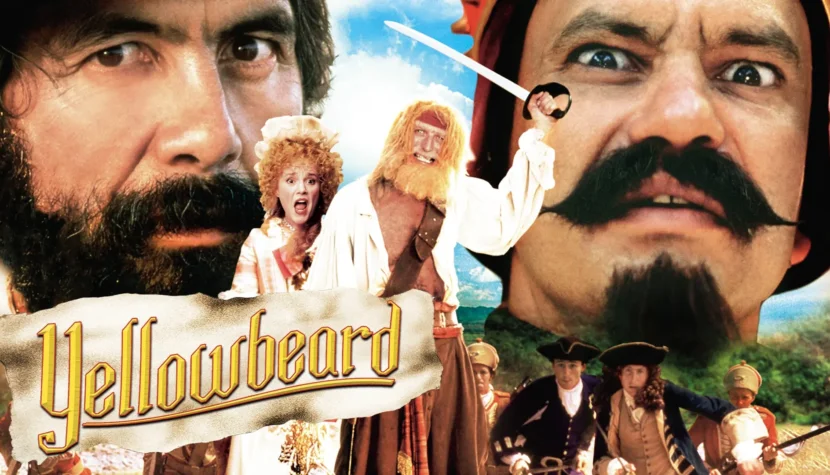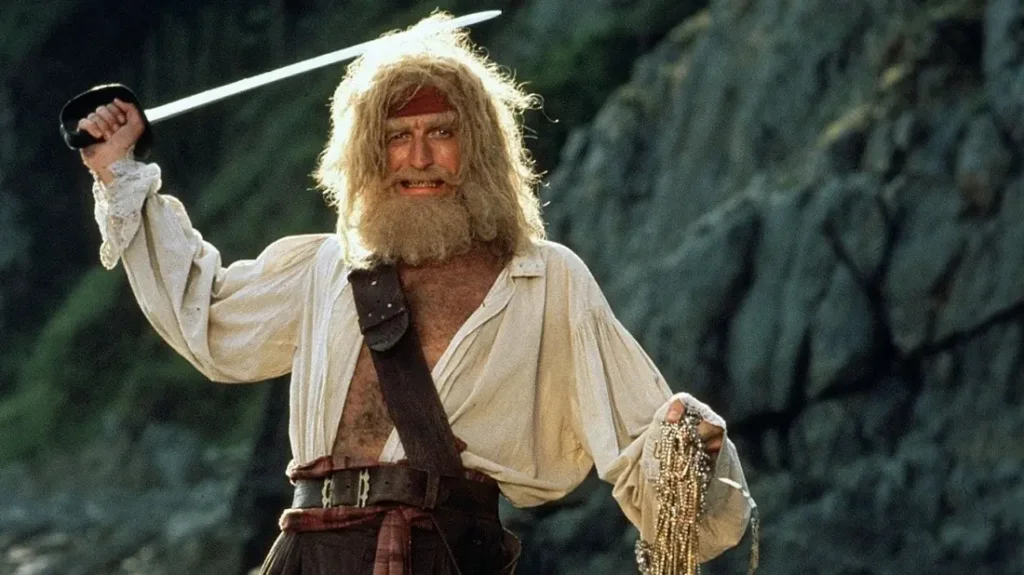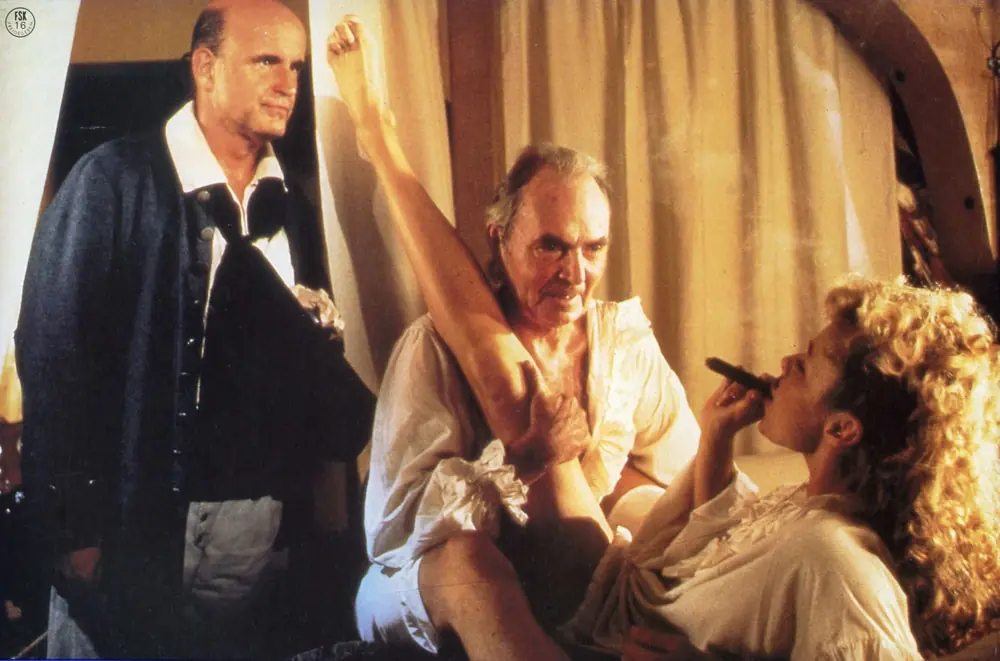YELLOWBEARD. The Monty Python members in a parody of pirate films

After the members of Monty Python stopped working together on films and TV shows, they went their separate ways. John Cleese continued to entertain as a comedian, Michael Palin traveled the world, and Terry Gilliam directed several excellent films (“Brazil”, “12 Monkeys“). However, the Pythons occasionally reunited to work on a project, though usually not with the full group. One such quasi-Python creation was the film “Yellowbeard”, a parody of pirate-themed movies. As a fan of both buccaneer tales and the English comedy group, I was expecting a real absurd feast, bathed in the rays of the southern sun.
The idea for the film was sparked during a dinner, attended by Graham Chapman, the already renowned director Sam Peckinpah, and Keith Moon, drummer for The Who. Moon initially wanted to star in it himself, but didn’t live to see the film’s completion. Before the first scene could be shot, several years passed, as the creators had to secure funding. By the time production began, they had gathered a diverse and impressive group of comedians. Representing Monty Python were Graham Chapman (co-writer and lead actor), Eric Idle, and John Cleese. They were supported by Mel Brooks collaborators Marty Feldman (“Young Frankenstein”), Kenneth Mars (“The Producers”), Madeline Kahn (“Blazing Saddles”), the comedic duo Cheech Marin and Tommy Chong, and even David Bowie in a small role. Additionally, there were a few well-known British (Peter Cook, James Mason) and American (Peter Boyle) names in the cast. The music was composed by Brooks’ “in-house” composer, John Morris. With such a mix of talent, it seemed the film would be a gag-filled, absurd adventure set in the South Seas.

Unfortunately, the film disappoints, although it can still provide some mild entertainment. The script is its weakest point, riddled with plot holes and illogical twists that can’t be explained by Monty Python’s usual brand of nonsense. This is largely due to changes made at the behest of Hollywood producers. There are also plenty of failed, unfunny jokes. Even the actors themselves later admitted that “Yellowbeard” didn’t work—John Cleese and Eric Idle were in agreement on this. Both, however, emphasized that they had a fantastic time on set.
The film contains most of the common pirate tropes. There’s hidden treasure, a young man eager for adventure, a ruthless corsair, a naval battle, a mutiny, sword fights, and even a romantic subplot. All of this is filtered through Python’s lens, twisted and theoretically, at least, surprising. But each element is lacking something. The naval battle is nonsensical, the sword fights don’t evoke either laughter or tension, the characters’ actions are sometimes unclear, and the whole thing falls apart. There are a few successful gags (such as the raid on a Spanish fort), and the character of Yellowbeard is a parody of the real pirate Edward “Blackbeard” Teach (the writers did their homework—the pirate sticks smoldering pieces of fuse into his beard, just like Teach did). At times, it feels like this group of talented people is getting in each other’s way, paradoxically lowering the film’s quality rather than enhancing it. This was also the last film for Marty Feldman, the distinctive actor with a wonderful English accent. The film is dedicated to him.

“Yellowbeard” was a financial failure, as were most pirate films at the time. This trend would only be reversed by Disney’s brilliant “Pirates of the Caribbean” in 2003. Nevertheless, it’s worth giving it a chance to see a different take on the buccaneer theme. The wild, almost primal Yellowbeard is far from the stereotypical on-screen pirate, the romantic rogue with a noble heart. And if you’re willing to overlook the script’s idiocies and let yourself be carried along by the story, you might even derive some enjoyment from the viewing.
Written by Piotr Zymelka

